From Lee Kuan Yew to Lawrence Wong: The changing leadership styles of Singapore’s Prime Ministers
CNA's Fabian Koh lays out Singapore's journey towards what experts describe as a "gentler, softer" stewardship – and what to expect from the incoming PM.
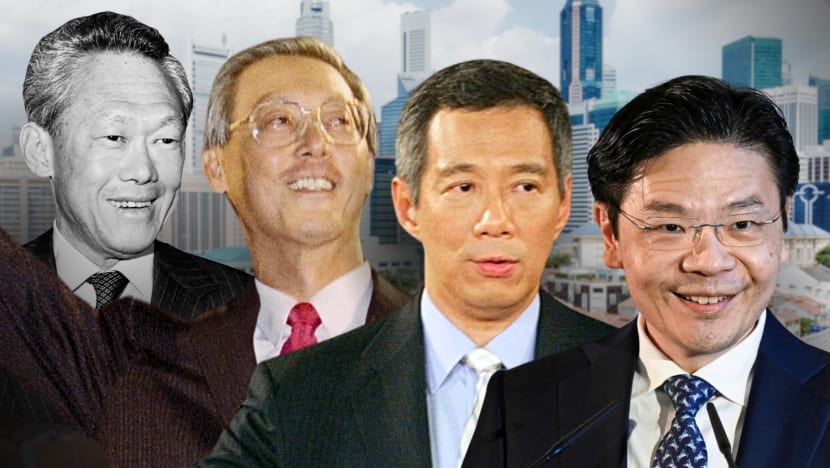
From left to right, Singapore's Prime Ministers Lee Kuan Yew (1959-1990), Goh Chok Tong (1990-2004) and Lee Hsien Loong (since 2004); and the PM-in-waiting Lawrence Wong. (Photos: AFP/Roslan Rahman, Julien de Rosa)

This audio is generated by an AI tool.
SINGAPORE: Even before Deputy Prime Minister Lawrence Wong takes office as Singapore’s fourth PM on May 15, he has already provided a glimpse of what could be his approach to governance.
With the Forward Singapore exercise led by him and the rest of the country’s fourth-generation or 4G leadership, there appears to be a willingness to listen to the people more and possibly shake up the social compact, political observers told CNA.
If that is a response to the challenges of today, then it is in step with how the leadership styles of Singapore's different Prime Ministers have evolved over the years to reflect their respective domestic and global circumstances, the observers added.
“That said, the common thread throughout was the focus on economic pragmatism, which is expected to continue,” said Ms Nydia Ngiow, managing director of BowerGroupAsia in Singapore.
FIGHTING FOR SURVIVAL
The impending leadership transition will be the third for Singapore, which gained independence in 1965.
Its first Prime Minister, Mr Lee Kuan Yew, was sworn in in 1959, and the late Mr Lee had to deal with a well-documented list of existential issues from colonialism to separation from Malaysia.
“The time dictates the style of leadership," said former parliamentarian S Vasoo. "Lee Kuan Yew was pressured by survival.
“He was never driven by fear, but instead by a goal, which was a focus on providing the people of Singapore better lives, better housing and jobs."
Due to the circumstances, the former Minister Mentor was “more assertive and meant business, and more focused solely on getting things done”, he added.
Dr Vasoo was part of Mr Lee's Tanjong Pagar GRC from 1991 to 2001. Since retiring from politics, the 83-year-old has been a grassroots advisor in Ang Mo Kio, helping Mr Lee's eldest son and outgoing PM Lee Hsien Loong.
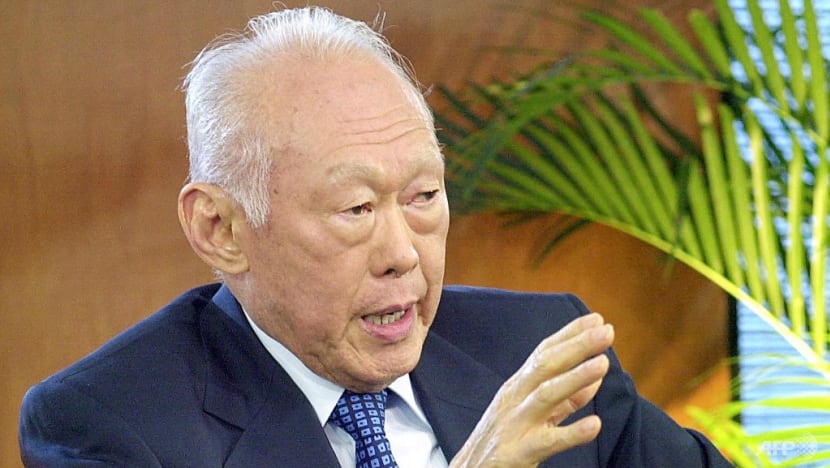
The older Mr Lee's rise originated from a power struggle against a leftist faction within the People's Action Party (PAP), said National University of Singapore political scientist Bilveer Singh.
After that, he had to lead the struggle for independence, and "so his coming to power is totally different from any of today’s contexts", the associate professor added.
After independence came mammoth tasks such as tackling unemployment and providing basic infrastructure – all against the backdrop of a Cold War, Vietnam war and Konfrontasi between Indonesia and Malaysia.
“In that environment, the leadership style was to capture total control at home," said Assoc Prof Singh. "So that the leaders can run the country politically and economically.”
He believes Mr Lee was "too tough" and didn't "loosen his grip even though society was changing".
“But I don’t blame him, because he spent his time fighting the communists and the communalists and that required a different type of knuckle dusters.”
Ms Ngiow pointed out that Mr Lee's approach was necessary in a time when he had to establish national identity and unity in a young, multicultural society.
“His solution was to emphasise meritocracy, pragmatism and economic development in the early formative years of Singapore’s independence,” she said.
While his policies transformed Singapore into a global economic powerhouse, critics had argued that this was at the expense of political freedoms.
Professor Terence Lee from the Sheridan Institute of Higher Education in Perth said Mr Lee's leadership style was “rather unrelenting”.
Detractors would probably describe him as "on the stronger side of authoritarian”, said the dean of humanities and social sciences, whose research interests include Southeast Asian politics.
Yet there is no denying that Mr Lee succeeded in ensuring not just Singapore's survival but also its growth.
In 1965, the founding PM famously said: “Over 100 years ago, this was a mudflat; swamp. Today, this is a modern city. Ten years from now, this will be a metropolis. Never fear.”
A GENTLER GOVERNMENT
When Mr Goh Chok Tong took over as Prime Minister in 1990, it heralded a period when Singapore thrived economically and Singaporeans enjoyed wealth, safety and security, experts noted.
“We had this whole massive boom across everything. Property values and wages probably doubled in that period of time,” said Prof Lee.
“(Mr Goh) actually oversaw Singapore into what we would call a global city today. The bulk of globalisation was very much in the 1990s, and he was there overseeing that.”
Prof Lee noted that very early on, even before he became Prime Minister, Mr Goh had attempted to set the tone for a “kinder and gentler” Singapore.
He emphasised consensus-building and the need to balance economic growth with social cohesion, for instance launching a committee to strengthen Singapore’s “heartware”.
However, "that unraveled very quickly with the Catherine Lim saga where he decided that he needed to show a bit of an authoritarian streak in him”, Prof Lee noted.
In 1994, local author Lim penned two pieces critiquing the ruling PAP and its governing style. It drew a response from Mr Goh, who said that if she wished to comment on politics, she should join a political party; and that what she had written was unacceptable and “out of bounds” in political discourse.
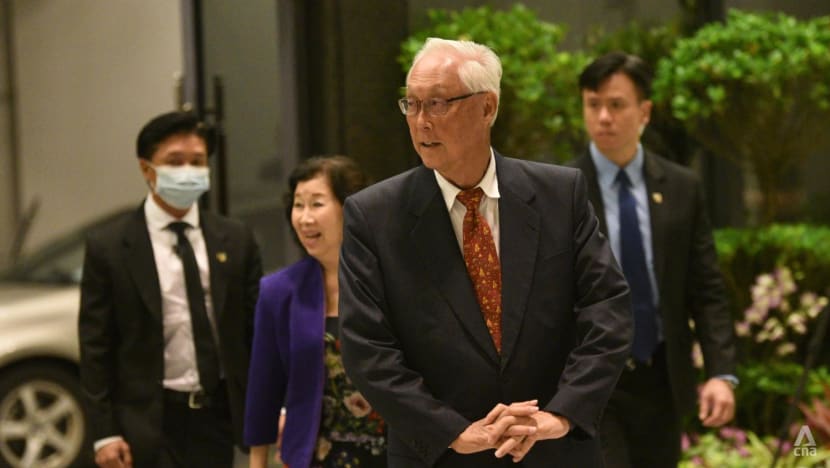
Yet it was also Mr Goh who steered Singapore through key global challenges including the 1997 Asian financial crisis, the emergence of terrorism as a salient threat – driven by the 9/11 attacks in 2001 and the Jemaah Islamiyah plot to strike Singapore the same year – and the severe acute respiratory syndrome (SARS) outbreak of 2003.
Assoc Prof Singh said Mr Goh's bureaucrat background meant that he was not as charismatic a leader as his predecessor.
But "ultimately, connection to the people is what matters" and Singaporeans trusted what Mr Goh had to say, the academic added.
Assoc Prof Singh noted however that Mr Lee still loomed large during Mr Goh's time in office.
Mr Lee remained in the Cabinet as Senior Minister from 1990 to 2004, a period when Singapore's next leader Lee Hsien Loong was also Deputy Prime Minister.
FOCUS ON THE SOCIAL
Being the son of the first prime minister, incumbent PM Lee was likely exposed to affairs of state from a young age and has had “a super long runway in politics”, said Assoc Prof Singh.
With this heightened political sense, PM Lee has been clear in communicating his policies to the people, both on domestic and foreign policy issues, Assoc Prof Singh added.
For instance, since his tenure started in 2004, the Prime Minister has dealt with the significant and constant challenge of US-China tensions, which have been escalating since around 2012.
“What Lee Hsien Loong did differently from his predecessors is he was much more conscious that he needed to articulate more publicly the messaging – that we will not take sides,” said Assoc Prof Singh.
Experts also pointed to PM Lee's savvy adoption of social media to engage more openly with the population. He has 1.7 million followers on Facebook and around 730,000 on Instagram.
“He knows he is dealing with a very different society, and that those who are Gen Z or millennials are talking about very different things altogether,” said Assoc Prof Singh.
“So he has a much more realistic assessment of why people are critical of the PAP or why people want the PAP to form the government.”
The Sheridan Institute's Prof Lee cited a 15-minute Facebook live chat that the Prime Minister held in 2015, where he answered a range of questions from the public.
“The government realises that it does get quite messy. You invite them into your space, and they are not going to disappear,” said Prof Lee. “It serves to demonstrate their willingness to engage with a broader group of people, rather than just through the mainstream media.”
PM Lee has been motivated to be more approachable and more active in understanding the people, said Dr Vasoo, the former lawmaker.
In the past, citizens had to attend Meet-The-People Sessions to speak with their Members of Parliament.
“Nowadays they send you all sorts of things, and you have to reply. There are different viewpoints, some critical and some supportive," said Dr Vasoo. "The sociopolitical landscape for interactions has changed.”
PM Lee has also placed greater emphasis on social policies and inclusivity, with measures such as a Baby Bonus cash gift and the shift to a five-day work week.
Before him, welfare was a "dirty word", as PM Lee himself remarked in a 2006 speech in parliament. Then, he said it was essential that his government "tilt the balance in favour of lower-income Singaporeans".
To achieve this, PM Lee has avoided direct welfare provision in the manner of the "Europeans with their heavy burden of social spending"; instead advocating and sculpting a uniquely Singaporean approach that emphasises self-reliance.
Western commentators have acknowledged this, with a Forbes article in 2015 – the year Singapore marked its Golden Jubilee – calling it a remarkable accomplishment for the country to have “built an alternative to the European style welfare state”.
Observers noted that compared with the leaders before him, PM Lee has been more open to delegating the task of running Singapore to his ministers, as governance became much more complex.
Trusted lieutenants included former Cabinet minister Khaw Boon Wan who took on and fixed many troubled portfolios like housing and transport; Senior Minister Teo Chee Hean whom he appointed as Coordinating Minister for National Security; and current President Tharman Shanmugaratnam who advised him on economic policies.
In 2013, PM Lee himself acknowledged that "the tasks have become more complicated and more intense" – hence the need to adapt his administration's structure and to build up the ranks of political leadership.
Amid globalisation, rapid technological advancements and changing demographics, PM Lee has also had to grapple with issues like costs of living, housing affordability and immigration policies.
“Although he himself is well-loved – winning his GRC (Group Representation Constituency) handily with 71 per cent of the vote in the most recent General Election – it was also during his tenure that the ruling PAP lost two GRCs,” said BowerGroupAsia's Ms Ngiow.
Observers have attributed this to an electorate increasingly desiring more checks and balances on the government.
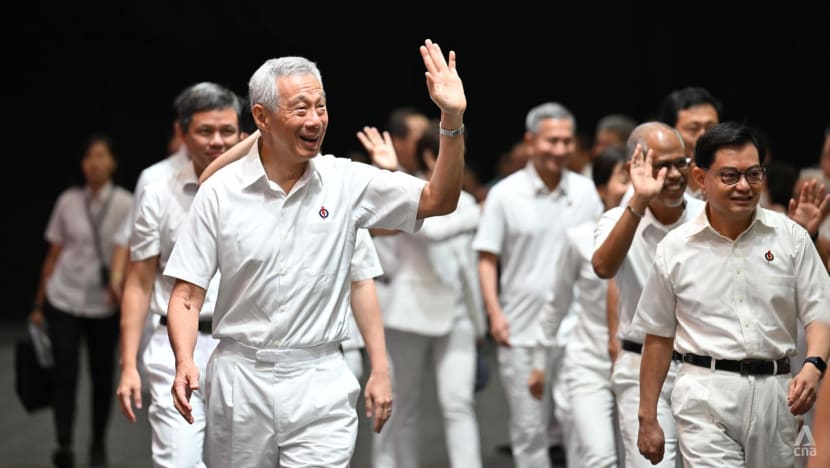
THE FOURTH GENERATION
Mr Wong will take the reins against this backdrop – and early signs show an intention to focus on the "common ground" and on "hearing a diverse range of perspectives and views and staying open to different ideas”, in his own words.
His Forward SG exercise, launched in June 2022 shortly after his promotion to Deputy Prime Minister, can be viewed as an attempt to refresh Singapore’s social compact, in contrast to previous public consultation initiatives which set about collecting feedback to inform policies.
The Singapore government defines a social compact as an implicit agreement between the people and it on what roles and responsibilities each plays.
This will be pivotal as Mr Wong prepares to address a host of challenges which experts identified as spanning income inequality and class struggle; social mobility and inclusivity; environmental sustainability and climate change; an ageing population and growing healthcare needs; as well as global and regional geopolitical tensions.
Ms Ngiow said the incoming prime minister would need to continue fostering innovation and entrepreneurship while maintaining Singapore's reputation as a global business hub – or "risk further ire from the citizenry", she said.
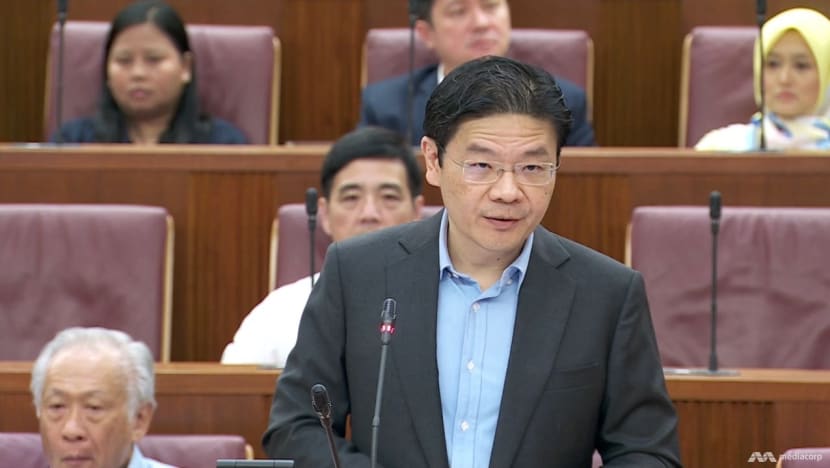
With an evolving opposition landscape, Mr Wong will have to use parliament as a platform to show his leadership, the observers noted.
“As DPM he has not shied away from sparring with opposition members, primarily Leader of the Opposition Pritam Singh, in parliament,” said Ms Ngiow.
In his Budget 2024 round-up speech in February, for example, Mr Wong challenged the opposition parties to make drawing from the reserves an election issue.
“Let's go to the people," he said. "Ultimately, Singaporeans can decide what is the best fiscal approach to take Singapore forward."
And during last year's Budget debate, Mr Wong jousted with the Workers’ Party over its 2019 working paper on Singapore's housing policy, calling the opposition bloc to admit it was wrong then to suggest cutting back on building new flats.
Ms Ngiow noted that as Prime Minister, Mr Wong may hold back and only weigh in when necessary, particularly on critical issues or during heated debates.
For veteran former politician Dr Vasoo, this bodes well.
“Singapore is like a sailing boat in a big ocean. We are always subject to turbulent winds and currents," he said.
"You require a group of people who are able to steer the boat ... to navigate ahead and keep it going."


















